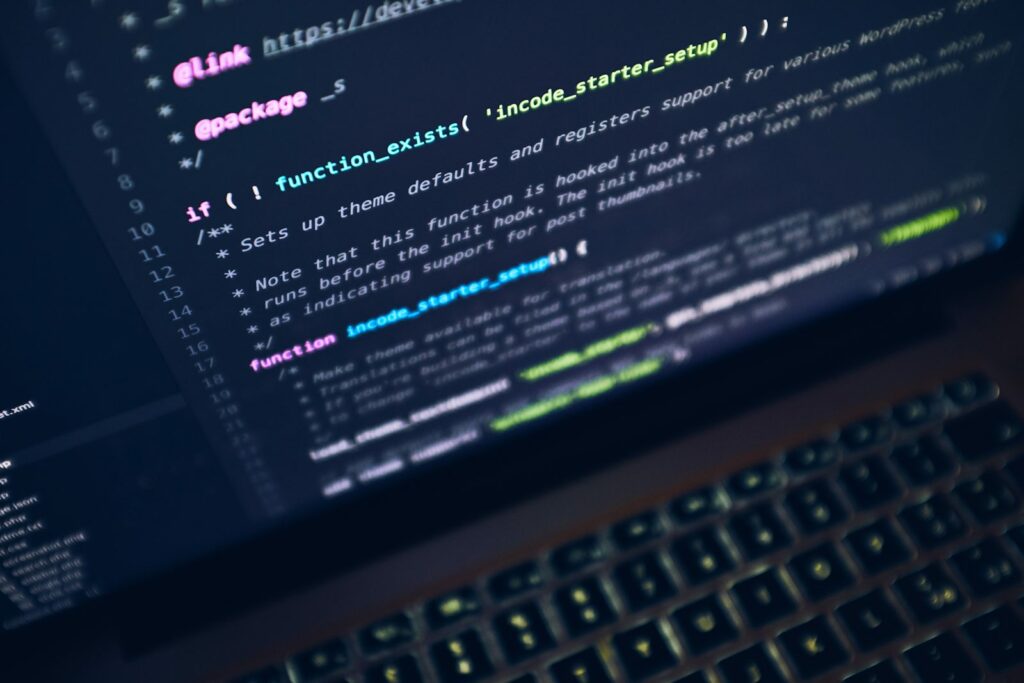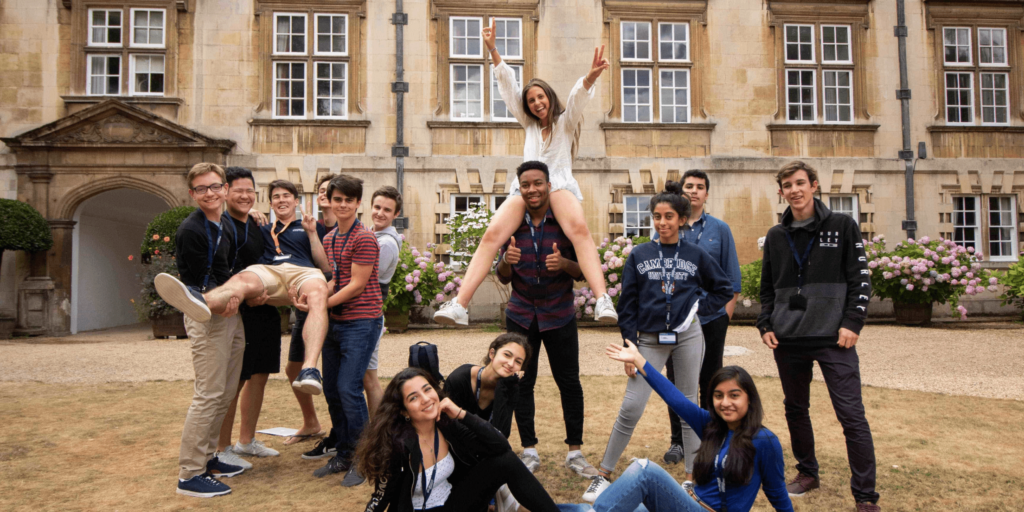Artificial Intelligence (AI) has transformed industries across the globe, introducing innovative solutions to age-old challenges. Its impact is particularly notable in the realm of planning and time management, where AI’s capabilities are revolutionising the ways in which tasks are prioritised, and schedules are crafted.
For students, effective time management is a cornerstone of academic success, enabling them to balance study, personal commitments, and extracurricular activities with ease. AI steps into this space with personalised solutions, adapting to individual learning styles and scheduling needs, thus offering a tailored approach to managing time. This fusion of technology and personalisation not only enhances productivity but also empowers students to navigate their educational journeys with confidence and efficiency.
Creating a Personalised Schedule with AI
AI-powered schedule optimisation tools use artificial intelligence to meticulously analyse an individual’s daily routines, preferences, and priorities to create a highly personalised schedule. This approach ensures that every aspect of a student’s life is aligned with their academic and personal goals. Leading the charge in this technological advancement are tools like Google Calendar. It incorporates AI features to suggest the most efficient use of time based on historical data and future commitments.
Applications such as Todoist and Any.do further exemplify this innovation, offering recommendations for optimal schedule arrangements. Moreover, top-tier AI calendar apps like ClickUp, Trevor, and Clara provide advanced scheduling solutions that seamlessly integrate with various platforms for comprehensive time management.
How to use AI in your schedule?
To fully leverage the advantages of AI-powered scheduling, consider the following tips:
- Sync calendars across devices: Ensure your schedule is accessible anywhere, at any time, by syncing your calendar across all your devices. This guarantees real-time updates and allows you to stay on top of your commitments without missing a beat.
- Set strategic reminders: Utilize reminders to keep track of upcoming tasks and deadlines. Positioning these reminders strategically can help you prepare in advance and avoid last-minute rushes.
- Utilise collaboration features: Many AI scheduling tools offer collaboration features that are invaluable for group projects or coordinating with peers. Sharing access to tasks and schedules can enhance teamwork and improve project outcomes.
- Personalise with AI suggestions: Engage with the AI’s suggestions for time allocation. These are based on your past behaviour and can offer insights into how you can improve your time management.
- Review and adjust regularly: Regularly review your AI-generated schedule and make adjustments as needed. Your preferences and priorities may evolve, and your schedule should evolve with them.
By embracing these tips, students can leverage AI to not only optimise their time management but also to boost their productivity and academic performance significantly.
AI in Prioritising Tasks
AI algorithms are revolutionising the way we prioritise tasks by evaluating factors such as urgency, importance, and how each task aligns with personal goals. These intelligent systems can sift through a multitude of tasks, assessing each one’s deadline, required effort, and relevance to long-term objectives, thereby determining the most efficient order of completion.
Building on the concept of task prioritisation, it’s noteworthy how AI extends beyond just categorising tasks by complexity or relevance. A pivotal study by the Nielsen Norman Group highlighted the profound impact of generative AI tools, such as ChatGPT, in business settings. It demonstrated an average performance increase of 66% across three diverse case studies. This enhancement is particularly pronounced for complex tasks. They can be efficiently prioritised not only by their inherent characteristics but also by considering the time they would take to complete. Significantly, AI’s capability to estimate completion time is enhanced by leveraging other AI tools, further refining the prioritisation process.
Furthermore, the study revealed that less-skilled workers gain the most from AI assistance, highlighting the technology’s role in levelling the playing field in task management. This illustrates the broader capacity of AI to optimise task execution strategies, significantly boosting productivity and efficiency by integrating a time-estimation dimension into prioritisation algorithms.
How to integrate AI tools
Integrating AI prioritisation into existing workflows and productivity routines can be a game-changer for students and professionals alike. Here are some strategies to effectively incorporate AI-driven task prioritisation:
- Adopt AI-powered productivity tools: Utilise tools that incorporate AI for task management. Applications like Microsoft To-Do or Todoist use AI to suggest prioritisation based on your habits and deadlines.
- Learn from AI prioritisation principles: Even without directly using AI tools, the principles behind AI prioritisation—evaluating tasks based on urgency, importance, and personal goals—can be adopted manually. This approach encourages critical thinking about what tasks should take precedence, fostering a mindset that mirrors the efficiency of AI.
- Incorporate AI recommendations into daily planning: Start your day by reviewing AI-generated suggestions for task prioritisation. Adjust your daily or weekly plan based on these insights to align with your most critical objectives.
- Use AI to set realistic deadlines: AI tools can help estimate the time required for tasks, allowing for more accurate scheduling and prioritisation based on actual capacity.
- Regularly update your preferences and goals in the AI system: As your priorities and goals evolve, continuously update this information in your chosen AI tool to ensure the recommendations remain relevant and aligned with your objectives.
AI-Enhanced Revision Timetables
Leveraging AI for creating revision timetables can dramatically transform study efficiency. For optimal outcomes, input comprehensive details into the AI tool, such as specific tasks, your confidence levels across subjects, available study hours, and your preferred working style. This enables AI algorithms to customise a revision schedule that suits your academic ambitions while accommodating your study habits.
AI algorithms go beyond basic scheduling; they analyse study materials and assess learning objectives to generate personalised study plans. They prioritise topics based on your needs, align study sessions with your productive times, and adapt to your learning pace. For instance, Quizlet uses AI to suggest study sets and track progress, ensuring that students focus on areas needing improvement.
The effectiveness of AI in education is underscored by the Knewton case study, where personalisation of educational content led to improved study outcomes, especially for struggling students. It demonstrated how mastery through personalised assignments could enhance course performance over time.
To optimise your AI-generated revision timetable, consider these strategies:
- Set clear academic goals: This helps the AI system design a focused and goal-oriented timetable.
- Provide thorough input: The more detailed your information, the better the AI can customise your study schedule.
- Adapt based on feedback: Use feedback loops to refine the AI’s suggestions, enhancing the effectiveness of your revision plan.
- Ensure variety: Communicate your need for a balanced timetable that includes diverse subjects and breaks to prevent burnout.
By integrating AI tools like Quizlet into your study routine, you can enjoy a tailored and efficient revision process that aligns with your learning style and academic objectives, leading to better academic performance.
Join the Immerse Education 2024 Essay Competition
The Immerse Essay Competition is open for 2024! Follow the instructions to write and submit your best essay for a chance to be awarded a 100% scholarship.

Automated Reminders and Follow-Ups
AI reminders and follow-ups are revolutionising task management by ensuring people stay on top of their duties. These tools remind users about deadlines, meetings, and tasks, reducing distractions and boosting productivity. Features include timely notifications, which prevent important tasks from being overlooked.
Tools like Microsoft Cortana and AI-powered reminder apps are leaders in this field. Cortana can set reminders triggered by time, location, or interactions, making them more relevant. AI reminder apps tailor notifications based on user habits, improving task completion chances.
Setting up AI reminders involves choosing the right frequency and timing to avoid annoyance and improve efficiency. Customising how you receive these reminders – through visual or audible alerts – can make them more effective. Future AI advancements might introduce predictive reminders based on past behaviour and adaptive learning to personalise support. This will turn simple reminders into a comprehensive assistant for managing time and tasks more efficiently.
AI-Driven Time Tracking and Efficiency Analysis
AI-driven tools such as RescueTime and Toggl revolutionise the tracking of time spent on activities and the analysis of productivity. These applications use AI to classify and categorise tasks, discerning productive efforts from potential distractions. They typically operate through a combination of desktop applications and browser plugins. They track time spent on different websites and applications, analysing the data to determine patterns of productive and unproductive behaviour. This allows for a nuanced understanding of how time is spent across various tasks and platforms, enabling personalised feedback and recommendations for enhancing productivity.
The core of these tools lies in their ability to uncover productivity patterns and generate actionable insights. They identify peak productivity periods and highlight times when distractions are most prevalent, allowing users to tailor their schedules for optimal efficiency. Insights from these tools are instrumental in shaping effective time management strategies, enabling users to pinpoint and eliminate inefficiencies.
By leveraging data from RescueTime, Toggl, and similar applications, individuals can adjust their daily routines to align with their natural productivity cycles, prioritise tasks more effectively, and ultimately enhance their overall work output. This data-driven approach fosters a more personalised and efficient way of managing time, contributing to higher productivity and a balanced lifestyle.
AI for Personal and Professional Balance
AI’s capacity to foster a balanced lifestyle extends beyond academic or professional productivity, playing a pivotal role in scheduling breaks and leisure activities with an intelligent touch. Research from Corporate Wellness emphasises the significance of work-life balance in bolstering well-being. The study highlights benefits such as diminished stress, enhanced mental and physical health, and boosts in productivity and interpersonal relationships. These findings are especially relevant to aspiring students who are navigating the complexities of academic pressures, personal development, and future planning.
AI’s role in wellness is growing, with tools for stress relief, relaxation, and mindfulness becoming more advanced. Examples include meditation apps that adapt to your stress levels, sleep trackers that provide personalised sleep improvement tips, and mood analysis tools that help monitor emotional health. These innovations support mental health by offering tailored relaxation and wellness advice.
Students can benefit from integrating AI wellness tools into their routines by setting technology and study boundaries, using journaling apps for self-reflection, and accessing professional support via AI platforms. These strategies help students balance work and rest, understand stress triggers, and receive customised advice and support. Consequently, enhancing their overall well-being.
Final Thoughts
In conclusion, integrating AI into daily planning and time management offers transformative benefits. Not only can they create personalised schedules and help prioritise tasks but also enhance study efficiency and manage reminders. These AI-driven tools not only optimise productivity but also contribute significantly to achieving a harmonious work-life balance.
By intelligently scheduling breaks and leisure activities, AI supports well-being alongside academic and personal success. Students are encouraged to explore and adopt AI tools, as they present a valuable opportunity to navigate the demands of education and personal development more effectively. Embracing AI can empower students to reach their full potential. The tools can ensure they remain productive, focused, and balanced in every aspect of their lives.
























